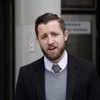
A top Russian deputy in the Duma says Canada is in a new “war without words” with Russia in a return of Cold-War era relations with the former Soviet Empire. As tempers flare between the two nations don’t be confused by one recent Global News report inferring Russian military aggression toward Canada: If you’re hoping to grab your hockey helmet and granddad’s rusty .22 to go guerilla in the woods because of some Red Dawn invasion—don’t expect a war anytime soon. The Crimean invasion of Ukraine shows Russia’s increasing disrespect for Western drawn borders doesn’t mean the Russians are about to start WWIII by fighting a NATO country like Canada, whose very safety implicates America’s own national security.
Advertisement
